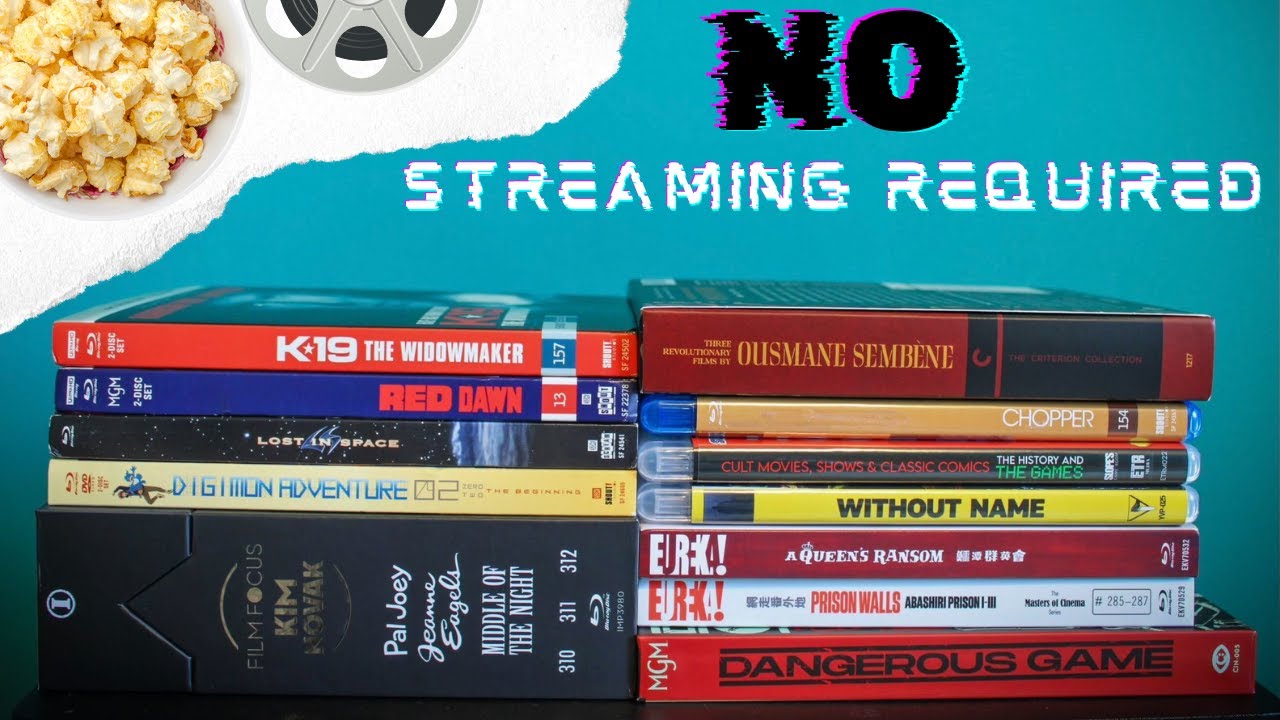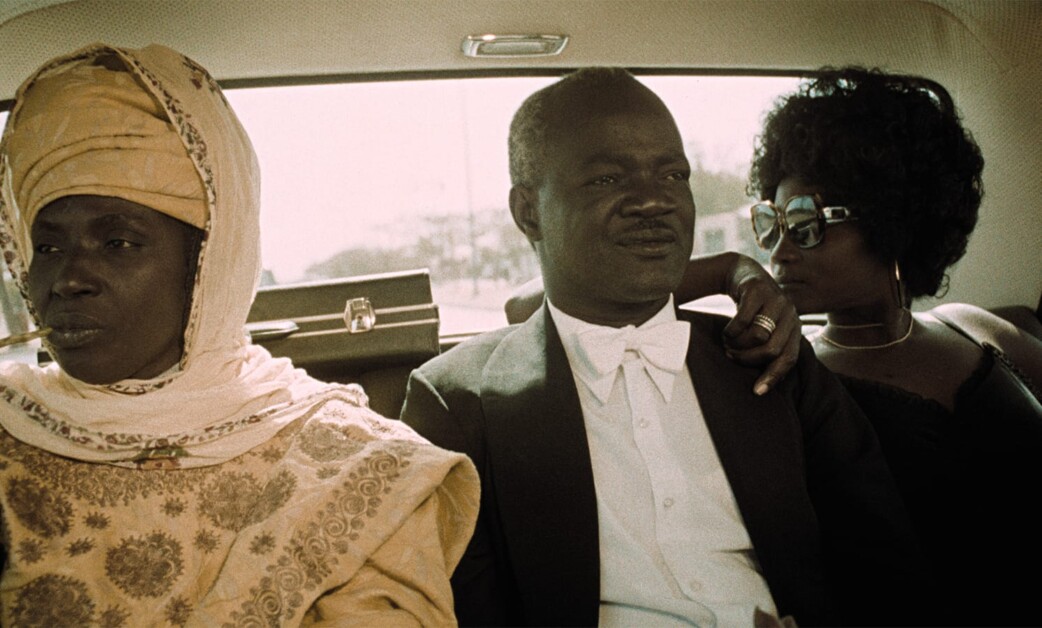Having blazed a trail for African filmmakers to tell their own stories on-screen, Senegalese auteur Ousmane Sembène took his career-long project—to unlock cinema’s potential as a vehicle for social change—in increasingly urgent and provocative directions in the 1970s. Searing critiques of colonialism, political corruption, patriarchal arrogance, and religious indoctrination, his three features from this decade—the radical call to resistance Emitaï, the wickedly subversive satire Xala, and the controversial historical epic Ceddo—confirmed his standing as a fearless truth-teller for whom the camera was the ultimate weapon in the fight against oppression in all its forms.
Emitaï – With revolutionary outrage, Ousmane Sembène chronicles a period during World War II when French colonial forces in Senegal conscripted young men of the Diola people and attempted to seize rice stores for soldiers back in Europe. As the tribe’s patriarchal leaders pray and make sacrifices to their gods, the women in the community refuse to yield their harvests, incurring the French army’s wrath. With a deep understanding of the oppressive forces that have shaped Senegalese history, Emitaï explores the strains that colonialism places upon cultural traditions and, in the process, discovers a people’s hidden reserves of rebellion and dignity.
Xala – An adaptation of Ousmane Sembène’s own 1973 novel, Xala is a hilarious, caustic satire of political corruption under an inept patriarchy. On the night of his wedding to his third bride, government official El Hadji (Thierno Leye) is rendered impotent and begins to suspect that one of his other wives has placed a curse on him. After seeking a cure from a local marabout, El Hadji must face the possibility that he deserves the infliction for his part in embezzling public funds and for helping to keep Senegal under French control. Adeptly combining elements of African folklore and popular cinema, Sembène indicts the hubris, entitlement, and opportunism of male authority figures.
Ceddo – In precolonial Senegal, members of the Ceddo (or “outsiders”) kidnap Princess Dior Yacine (Tabata Ndiaye) after her father, the king, pledges loyalty to an ascendant Islamic faction that plans to convert the entire clan to its faith. Attempts to recapture her fail, provoking further division and eventual war between the animistic Ceddo and the fundamentalist Muslims, with Christian missionaries and slave traders from Europe also playing a role in the conflict. Banned in Senegal upon its release, Ceddo is an ambitious, multilayered epic that explores the combustible tensions among ancient tradition, religious colonization, political expediency, and individual freedom.
For thoughts on Three Revolutionary Films by Ousmane Sembène, please check out my thoughts on No Streaming Required:

Video Quality
Three Revolutionary Films by Ousmane Sembène comes to Blu-Ray with new digital AVC-encoded 1080p restorations for all three films on three individual discs. Each of these films provides a lovely viewing experience that shows great respect for this iconic filmmaker. All of these films have received a 4K restoration from their 35mm Original Camera Negatives. These films were all made in the same decade and have similar qualities that will be talked about as a group with any notable differences pointed out.
Sembène remains surprisingly consistent across the six years that encompass these works. The stunning locales enrich the quality of the transfers in terms of texture and vibrancy. Emitaï and Xala are the most impressive of the trio with no egregious instances of print damage and fantastic clarity and detail. The intricacies of the costumes and beads of perspiration are a sight to see. There is variety in the locations explored thanks to the vastly different time periods, and each space is impeccably rendered. Ceddo matches the standard set by these transfers much of the time, yet there are very obvious stretches of what appears to be print degradation that could not be completely alleviated. If the choice was between not having the movie released and dealing with some minor damage, the distractions are so minor that the choice is easy from our perspective.
There does not appear to be any trace of digital noise due to compression limitations or other such nuisances thanks to the thoughtful allocation of disc space. The picture holds up extremely well throughout all three stories with the warm hues at play. Colors are impressive and consistently saturated in a visually mesmerizing manner. Skin tones are natural and consistent with discrete facial features easily noticeable in closeup. Black levels hold up well with virtually nothing in the way of crush. Highlights are never blown in any shots. This new collection honors the legacy of this vital voice in cinematic history.
Audio Quality
The Blu-Ray set comes with a remastered LPCM 1.0 mono track for each of these three films in the original mixture of Wolof and French with optional English subtitles. The remastered audio holds up very well from film to film with no signs of egregious instances of age-related wear and tear. Dialogue comes through clearly with no hint of distortion or other weaker elements. The singing and chanting showcased sound lovely throughout the set with favorable fidelity. There is never a moment where it threatens to swallow up any dialogue. Environmental sounds such as yelling or motors are rendered well alongside everything else. The Criterion Collection has treated the audio side of things just as well as the video.

Special Features
The Criterion Blu-Ray of Three Revolutionary Films by Ousmane Sembène includes a substantial booklet featuring the essay “History in the Remaking” by author Yasmina Price in which he delves into the career of Sembène, historical and thematic breakdowns, and much more that is invaluable in further appreciating these films. The on-disc special features are as follows:
- Mahen Bonetti and Amy Sall: A terrific 38-minute conversation between Mahen Bonetti, founder and executive director of the African Film Festival, and writer Amy Sall who discuss the career of Ousmane Sembène, who was a friend of Bonetti. The conversation delves into the lingering impact of his work, the creation of the African Film Festival, the importance of enduring curiosity, how his films represent history, a deeper analysis of the three films, and more.
- The Making of Ceddo: A 27-minute documentary is provided from footage shot by African filmmaker Paulin Soumanou Vieyra captured during the production of Ceddo in 1977. There is so much candid footage in which Sembène discusses his creative process that is worth exploring.
Final Thoughts
Three Revolutionary Films by Ousmane Sembène is a vital slice of African cinema that finds the master filmmaker tackling the impact of oppressors without kid gloves. The films range from gravely serious to hilariously satirical with each of them working extremely well. The auteur helps fill in vital gaps in the country’s history on screen for those indigenous to the area and the world at large. No one performance stands out, but Sembène ensured everyone shined under his direction. African cinema is often unfairly overlooked, but this set is yet another reminder that this region produces some of the best work around. The Criterion Collection has released a Blu-Ray set that features the films with a great A/V presentation and a couple of nice special features. For cinephiles or Sembène fans specifically, this is one release that you should not be without. Highly Recommended
Three Revolutionary Films by Ousmane Sembène is currently available to purchase on Blu-Ray.
Note: Images presented in this review are not reflective of the image quality of the Blu-Ray.
Disclaimer: The Criterion Collection has supplied a copy of this disc free of charge for review purposes. All opinions in this review are the honest reactions of the author.

Dillon is most comfortable sitting around in a theatre all day watching both big budget and independent movies.






